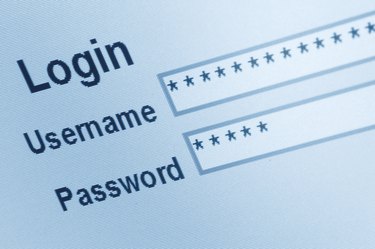
With numerous online threats to both your data and your identity, your computer's security systems are vital. Despite the necessity of strong digital security, the fact remains that no security system is perfect. There are many kinds of security systems, each with benefits and drawbacks. Picking the right combination of tools depends on your needs, and which downsides you're willing to accept in the name of security.
Anti-Virus and Anti-Malware Software
Video of the Day
The foundation of any security tool set, anti-virus software scans for and removes malicious software and files. Many anti-virus and anti-malware suites also include real time protection, preventing viruses and other software from installing in the first place. Without good anti-virus software, your computer is vulnerable to infection from any number of viruses. However, they do consume large amounts of processing power and RAM during scans and updates and sometimes come into conflict with other security tools, requiring you to add security exceptions from the program's settings menu. Scans can also be very time consuming, while false positives can lead to legitimate files being blocked or deleted. Anti-virus software must also be updated frequently, as hackers are constantly developing new methods to beat them.
Video of the Day
Password Authentication Systems
Many websites and software programs require a password-authenticated login. This is especially important if personal information is being stored. A strong password can be difficult to decipher and dramatically increase the time required to crack it. However, passwords can be cracked, especially if they aren't very strong. Storing passwords on your computer can also pose a considerable risk, as they can be used to lock you out of your various services and steal your identity, if someone manages to gain control of your computer. Passwords can also eventually be cracked using "brute-force attacks," where every conceivable combination of characters is tried until one finally succeeds.
Firewall Systems
Firewalls limit traffic to and from the computer on which they're installed, or to which they're connected, if you're using a hardware firewall. Suspicious or unauthorized network activity can be detected and blocked, a key step in identifying Trojan viruses and hijacking attempts. Firewalls can, however, flag legitimate programs as having unauthorized access, requiring you to create security exceptions and modify some settings. They can also limit your computer's performance, as they must be constantly online in order to effectively secure your computer and network.
Webcam Surveillance
Webcam surveillance enables you to secure your home or business itself with the use of your computer. These cameras can be viewed remotely from your computer, and many newer systems feature support for remote viewing through mobile device apps or access via the Internet. These cameras aren't impervious to hacking, however, and can be shut off by a skilled intruder, leaving your surveillance target completely unobserved.
Token-based Authentication Systems
Token-based security systems remove the possibility of someone hacking a password by removing the password itself entirely. Instead, an object such as a smart card or a USB flash drive with authentication information is used, identifying the user and granting them access to the computer or network. These systems can be used in multi-factor authentication to even more tightly secure access to privileged systems. However, this requires both the token and compatible hardware, a potentially expensive investment. Also, if the token is lost, then a great deal of effort must go into configuring a new one for the same account -- if that can be done at all.
Biometric Security Systems
Biometric systems take token identification a step further, using distinct biological information from a user as proof of identity. Using a fingerprint, facial scan or even a DNA profile can greatly secure a system, as it is much harder to fake or crack than a password or software key. However, much like other token systems, biometric devices require specialized hardware and software which can be expensive to implement. There are also concerns over privacy regarding the biometric information stored, as it can be used for numerous other applications including health and drug screening and identifying employees outside of the workplace. Biometric security also leaves the user open to assault by those seeking the secured property -- if her fingerprint is needed to unlock a secured property, a desperate enough thief may attack her and cut off her finger to gain the needed "key."